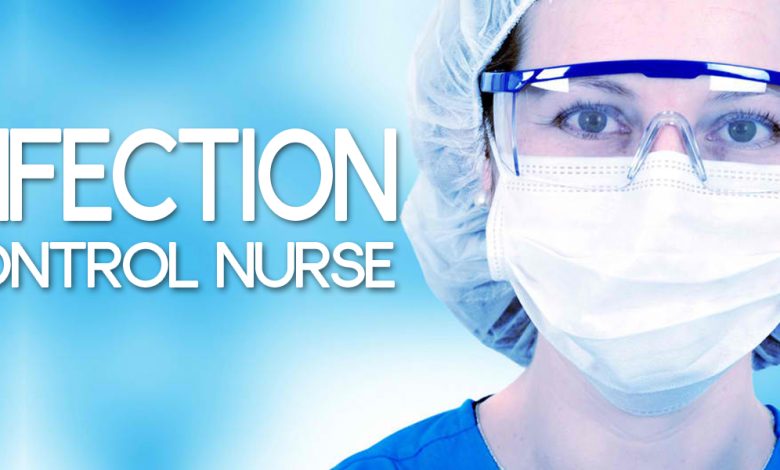
Still, primary care, or aged care, If you’re a health care worker working in a medical setting like hospitals. The primary purpose of this training is to help and stop the transmission using infection control training.
Or, if you have a business, taking your staff to suffer training will give your guests peace of mind. Away from that, this will add credibility and the necessary chops for your team to do their places effectively. So then are the reasons why one should suffer infection control training.
Click here: Cenforce, Tadarise, Avaforce & Aurogra 100
-
Understand How Infection Occurs
To further understand the explanation behind the benefits of infection control training, one must know what an infection is and how it occurs.
Infection is the way pathogens foray and grow inside the body, and it can enter any part of the body and spread through it. There are three effects needed for an infection to do.
Source: This refers to the contagious agent or pathogens like a contagion, bacteria, or other microbes. It is plante from cases, callers, and healthcare workers in sanitarium settings. Some people can infect without showing any symptoms, intentionally transmitting the origins to others. Other sources include outfits, medical bias, and wet shells in hospitals.
Immunocompromised people: are susceptible to infection because they’re not vaccinated or born with a weakened, vulnerable system.
Transmission: This refers to the transfer of origins to a susceptible person. These are done through direct contact, inhalation due to wracked bitsy patches, and sharps injuries in healthcare settings.
See also What’s the Stylish Face Cream For Unctuous Acne-Prone Skin?
By learning the nature of infections and how they are transmitted, you’ll understand why healthcare professionals must undergo infection control training.
-
To Help Case-To-Case Impurity
As a healthcare provider, your primary thing is to watch for and deliver stylish health services to your cases. According to the CDC, standard preventives concentrate all on patient care. These are the standard protocols that all healthcare providers practise to help prevent the infection from spreading from case to case. These are some practices they use to avoid illness in the healthcare setting.
Hand Hygiene: This is a simple yet effective way to avoid infections. Drawing your hands can help the spread of dangerous origins. That means washing hands with cleaner and water, or it can be an antiseptic hand irk like using alcohol-grounded hand sanitisers.
Use of Personal Protective Equipment (PPE): If there’s an anticipation of possible exposure to contagious matter, a healthcare provider must wear this to avoid impurity or conceivably infecting themselves. Wearing PPE upon room entry and duly disposing of it before exiting the infected room anticipate to contain the pathogens.
Follow Respiratory Hygiene: This rehearsed to help transmission of all respiratory infections like flu. The installations are equippe with accoutrements like towel paper or alcohol-grounde hand irk to use in the healthcare setting if exposed to respiratory concealment. Covering the mouth and nose with a towel is advised to people when coughing or sneezing.
Duly Handle and Clean Equipment or Bias: Regular disinfection and sterilization of the outfit and bias anticipated to avoid impurity.
See also Global Towel Diagnostics Market Outlook Ken Research
-
To Cover Themselves From Infection
Another reason to suffer infection control training is to cover the health and weal of healthcare providers. By complying with the infection control measures, they will protect themselves and others.
Without controlling the spread of infection, all healthcare settings will come dangerously, which will produce a massive healthcare dilemma in society. That is generally the launch of every epidemic in history.
-
To Misbehave With The Law
Away from the benefits, commanded by the Health and Social Care Act 2008 ( Regulated Conditioning) Regulations 2014 of Section 12 2 (c) and 2 (h) to bear your staff. Especially healthcare workers, to suffer infection control training. That will ensure that they have the necessary qualification and chops to do their jobs safely while assessing the threat of, detecting, and controlling the spread of, and precluding infections.
The threat assessment carrie out by healthcare professionals is grounde on HSE principles.
- Identify the infection that can harm people.
- Identify who might harm and how it’ll be.
- Estimate the pitfalls and decide the necessary protocols.
- Record the threat assessment.
- Review and modernize the assessment.
Final Studies
Employers should give their staff, whether healthcare workers or eatery staff, necessary training for infection control. That will ensure that they will carry out their jobs more efficiently and effectively depending on their part while remaining competent.
See also Is Airphysio Good for Bronchiectasis?
Prevention of infections is the main thing of healthcare providers in whatever medical setting they’re in. They need to understand how conditions be, how these microbes spread and the part each of them plays to help transmission.
visit: Cenforce 100 Mg reviews, Tadarise 20, Avaforce 100 & Cenforce 150